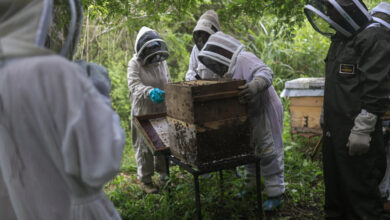ChatGPT Is a Threat to Proper Education?
Los Angeles and other districts are beginning to join this measure due to the alleged risk it implies in the learning process of students.

The Woman Post | Nibeth Adriana Duarte Camacho
Listen to this article
Read more content like this at: thewomanpost.com
But what is ChatGPT? According to the definition on the page that invites us to use this tool, https://openai.com/blog/chatgpt/, ChatGPT is an integrated model that interacts conversationally. The dialog format allows ChatGPT to answer follow-up questions, admit errors, challenge incorrect assumptions, and reject inappropriate requests. ChatGPT is a sister model to InstructGPT, which is trained to follow instructions and provide a detailed response.
It is a model trained with large amounts of text to perform language-related tasks, from translation to text generation.
The handling is very simple, and therein lies part of its magic. To use it we simply have to register on its web page (https://chat.openai.com/) and start chatting with it by asking it questions. The clearer and more detailed the question, the better the results will be.
Generative Pre-Trained Transformer version 3 (GPT-3), a language model developed and trained with billions of parameters by OpenAI from artificial intelligence, is the one used by these text generation models.
Essays, cover letters, projects, and college admissions tests are some of the things ChatGPT can do and the AI it has today is causing a stir in universities, colleges, and academic centers around the world.
The core of the debate and the question that we at The Woman Post would like to raise is: whether the way forward is a prohibition or whether it can be seen as an opportunity for education.
In a society like today's, in which technology is increasingly involved in the human experience, and we are hyperconnected all the time, with the constant use for example of the cell phone and add to that an acceleration of technologies that begin to include AI and systems, for millions of tasks that previously needed a whole team of people, it is necessary to ask what is the role of schools in this technological revolution that today integrates AI?
The human brain adapts to changes due to its plasticity, and it is this process that is known as learning. Although on the one hand, it is said that it would be very rare for new technologies to modify the brain, which has not happened in 20,000 years, it is true that as a social species, behavior does have an impact on both our habits and our emotions.
Therefore, habits that from a very early age including the use of technologies have derived a dependency, which also makes it difficult for us to retain information. The explanation is not only due to the appearance of new technologies but also to changes in our behavior and activities that previously did not include the use of a phone or a laptop.
The learning that forced us to look for information in encyclopedias, research, and read, has very important habits for the brain that produces synapses and neuronal activation and allows information that we want to retain or is important to be recorded in memory. The use of these AI deprives the human being of this type of process. But, even so, AIs open up the opportunity for tasks that previously could not be so time-consuming to be made easier and more practical. ChatGPT's ability to access millions of pages and information in an instant can be seen as a danger but also as an opportunity.
I think that a good use of AI allows researchers to have at hand more sources, lists with the best searches on a topic, and texts that only the human eye could be debugged into. Because you have to keep in mind that models like CHATGPT can't know what information is true or has for example copyright issues.
The acceleration of AI puts education in a tight spot and asks it to reinvent itself, to include technologies, a necessary adaptation for tomorrow's life in which it is believed that automation will cause the loss of about two hundred million jobs. We have to learn differently, to research, to create, to care.
According to Klaus Schwab, founder and executive chairman of the World Economic Forum and author of The Fourth Industrial Revolution, the jobs being replaced are mostly repetitive and ongoing.
In "Robotic Process Automation: Statistics, Business Impact, and Future", they state that up to one-fifth of the tasks performed by humans at work consist of repetitive computer operations that can be automated.
The solution? Thinking processes, creativity that only humans can do, care work, nursing, and relationships in general with other human beings, which usually involve a dose of compassion as a core value, would have less chance of being replaced by AI, as the author of the fourth industrial revolution, Klaus Shwab, says.




